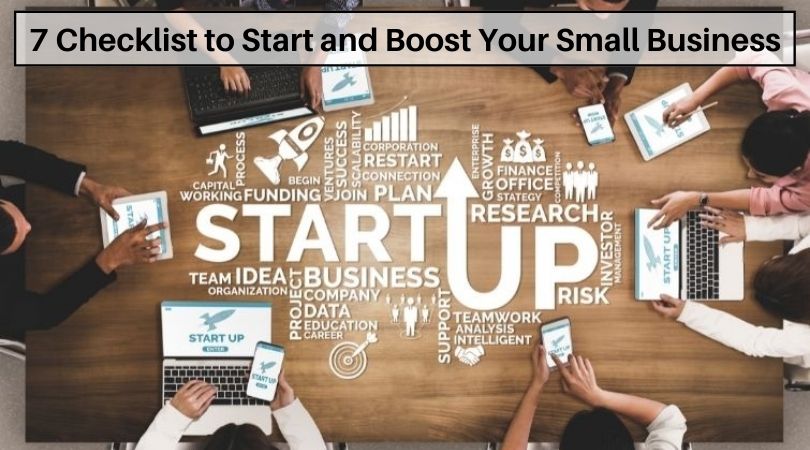Start your business from scratch with the help and guidance of this blog. It’s a competitive world and starting a new small business can be overwhelming.
There are many details to handle. It guides all aspects of running your business.
Whether you’re looking to open a retail store, start a landscaping company, serve coffee at the local farmers market,
or become an event planner or whatever, our simple step-by-step guide provides everything you need to get your business off the ground.
Steps to starting your small business from zero
1. Business Planning
The business plan is traditionally defined as a document that describes the nature of the business, the products and services to be offered, the financial objectives, a marketing strategy, management qualifications, and a description of the organization(s) seeking funding.
It also presents estimates of start-up costs, operating costs, and reoccurring expenditures.
Planning is the most important step to a successful business. Before starting your small business, it is essential to plan.
You should take into consideration several vital aspects and make a strong plan of action. This step is crucial because it will determine your success and measure how far you are prepared to go with your business venture.
2. Get Brand Name and Logo
In the next step to start your small business, get an attractive business name and logo for it.
An attractive business name and logo create brand identity, create trust among customers, and inculcate a habit of recall among them.
It is a wise business decision to brand your company with a distinguished name and logo that stands out in the competitive world of business.
3. Pick the right location
Make sure you pick the right location to target your audience and get them to convert into your customers.
To figure out the best location for your business, you first need to know if your business is right for the city you’re considering. This quiz will help you figure that out.
Keep track of the questions you know well and skip those that only apply to one kind of business (e.g., restaurants, hotels).
4. Startup loans
As the founder of a new business, you will want to concentrate on the number one priority of your business–selling.
As a self-financed person, it will be difficult for you to support your business at the initial stage. To help your business grow and to reach an advanced stage, you should look for loans that can provide funding for startup ideas.
Try to get traditional commercial loans, small business loans, and business lines of credit. Before choosing a wise decision, research more to choose the right one based on your need.
5. Estimate the startup cost for your business
When you’re looking to start a new business, some of the most estimating the startup costs of doing so.
The very initial stage may include locating a business location, personal assets that are needed for operating expenses, inventory investment, and much more.
Specific start-up costs will vary based on what type of business you are opening and where it is located.
For example, if you were planning to purchase equipment for your offices like computers, furniture, and anything else you might need, these are estimates for those items.
Related Article: How to calculate startup costs for small business
5. File for permits and licenses
As a new entrepreneur, you want to file permits and licenses for your business. It can be the most intimidating part of starting your own business.
Running a business requires more than just a good idea. You also need planning, equipment, and knowledge.
Starting a business without the proper permits and licenses can lead to legal trouble down the road — and it could prevent your company from realizing its full potential.
6. Pick the suitable software
Running a small business may feel hard. Now comes the task of keeping your business tasks manageable and all your data straight.
Choose the right software that reduces your business tasks. For small business owners, it’s often a challenge to manage all of the things that keep their businesses running: email, bill payments, bank transfers, customer records, and more.
So make sure to have a list of suitable apps and software on your budget.
7. Dive for Advertising
Marketing is everything to a business, whether you are big or small, marketing strategy is the key.
You could have the best product out there, but if no one knows about it, you would be out of business immediately.
Targeting the right customers can help with the marketing and sales of the product. Know your business needs and look for the right positive tone to match them.
Small businesses often seem to have a harder time than other businesses in getting their name out there.
Whether you are a local business or just starting out, there are many ways that you can use advertising as a marketing strategy to promote your business.














